Celebrating National Nutrition Week: Powerful Plant-based Food Groups for Optimal Health
On the occasion of National Nutrition Week, it’s essential to recognize some of the most powerful plant-based food groups in Indian cuisine. These foods are not only staples in the Indian diet but also vital sources of nutrients that promote overall health and well-being.
1. Millets
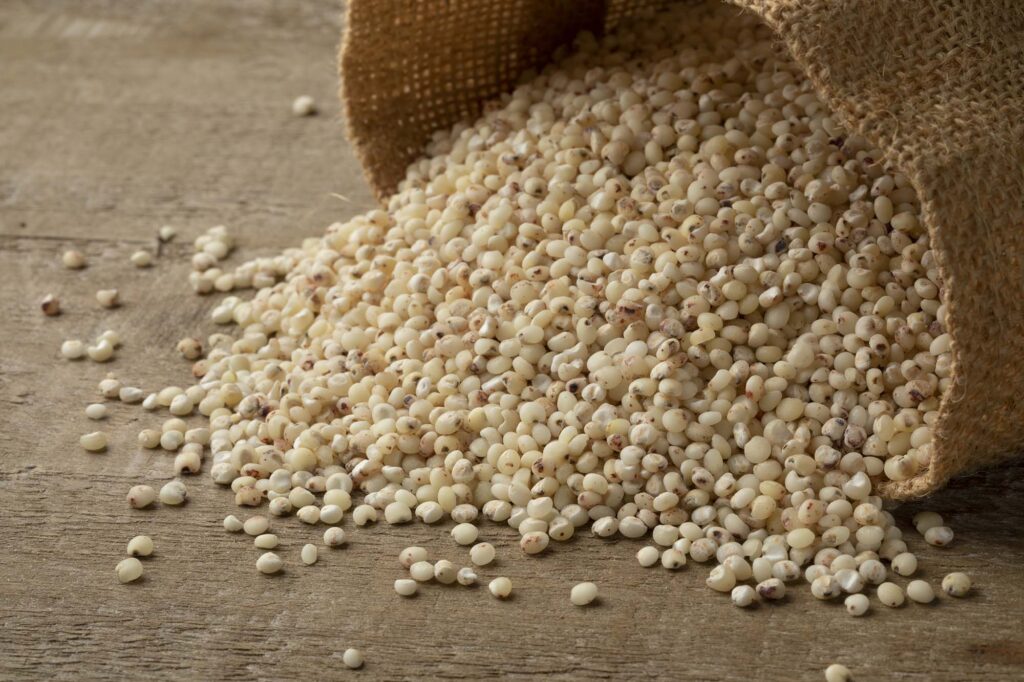
Millets are ancient grains that have been a part of Indian diets for centuries. They include varieties such as pearl millet (bajra), finger millet (ragi), amaranth (rajgira), foxtail millet (kangni), and sorghum (jowar). Millets are known for their resilience in harsh climates and are highly nutritious.
- Nutritional Information:
- High in Fiber: Millets are rich in dietary fiber, aiding in digestion and promoting a healthy gut.
- Protein: They provide a good amount of plant-based protein, which is essential for muscle repair and growth.
- Rich in Micronutrients: Millets are packed with iron, magnesium, phosphorus, and B vitamins.
- Low Glycemic Index: These grains have a low glycemic index, making them ideal for managing blood sugar levels.
2. Lentils and Pulses
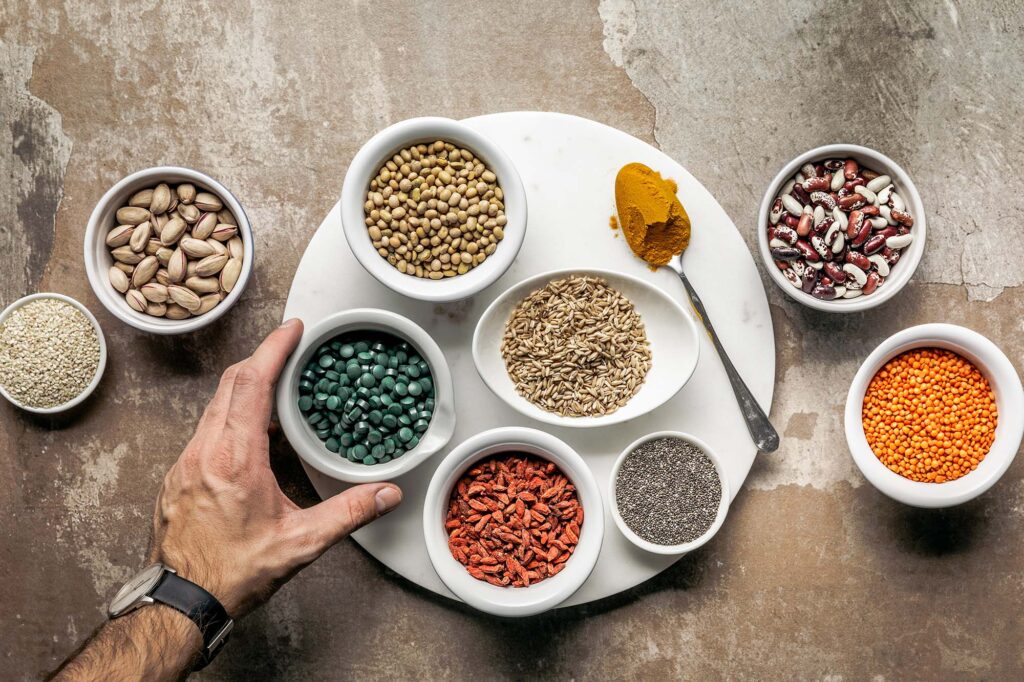
Lentils and pulses, collectively known as dal, are a cornerstone of Indian diets. They come in many varieties, including red lentils (masoor dal), split pigeon peas (toor dal), chickpeas (chana), and mung beans (moong dal).
- Nutritional Information:
- High in Protein: Lentils are an excellent source of plant-based protein, making them an essential food group for vegetarians and vegans.
- Rich in Fiber: They are loaded with dietary fiber, which helps in maintaining a healthy digestive system.
- Iron-Rich: Lentils are a significant source of iron, crucial for preventing anemia and boosting energy levels.
- Folate and Potassium: They provide essential vitamins like folate, which is vital for cell function, and potassium, which helps regulate blood pressure.
3. Nuts and Seeds
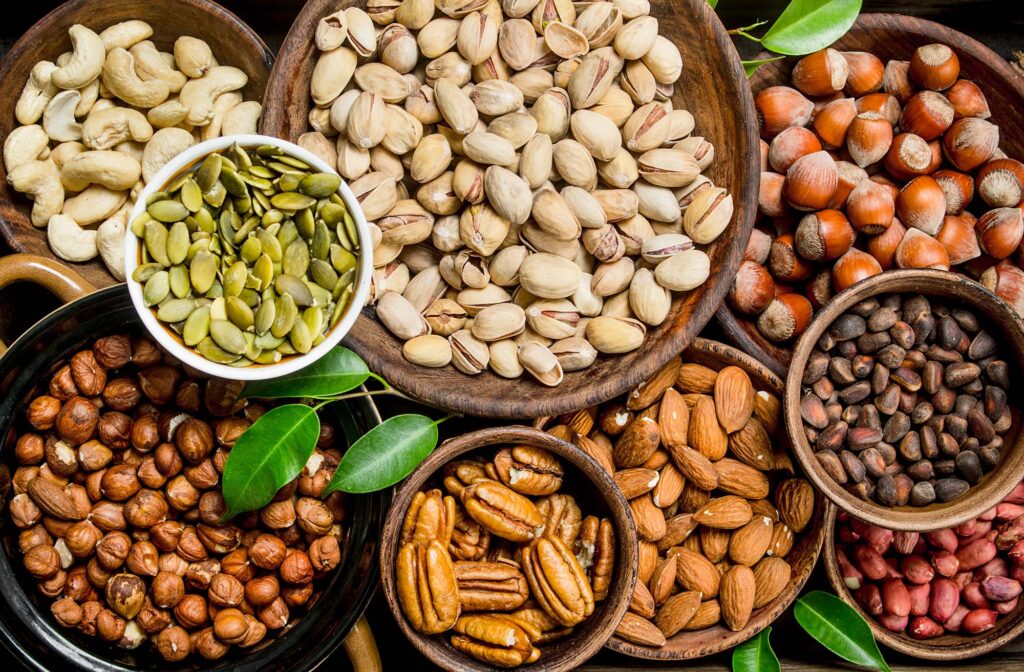
Nuts and seeds such as almonds, walnuts, flaxseeds, and chia or basil seeds are small powerhouses of nutrition. They are often consumed as snacks, garnishes, or even in the form of nut butter.
- Nutritional Information:
- Healthy Fats: Nuts and seeds are rich in unsaturated fats, which are beneficial for heart health.
- Protein: They offer a decent amount of protein, contributing to muscle maintenance and repair.
- Omega-3 Fatty Acids: Particularly in flaxseeds and chia seeds, these are crucial for brain health and reducing inflammation.
- Micronutrients: They are high in magnesium, zinc, and vitamin E, which are essential for immune function and skin health.
4. Leafy Greens
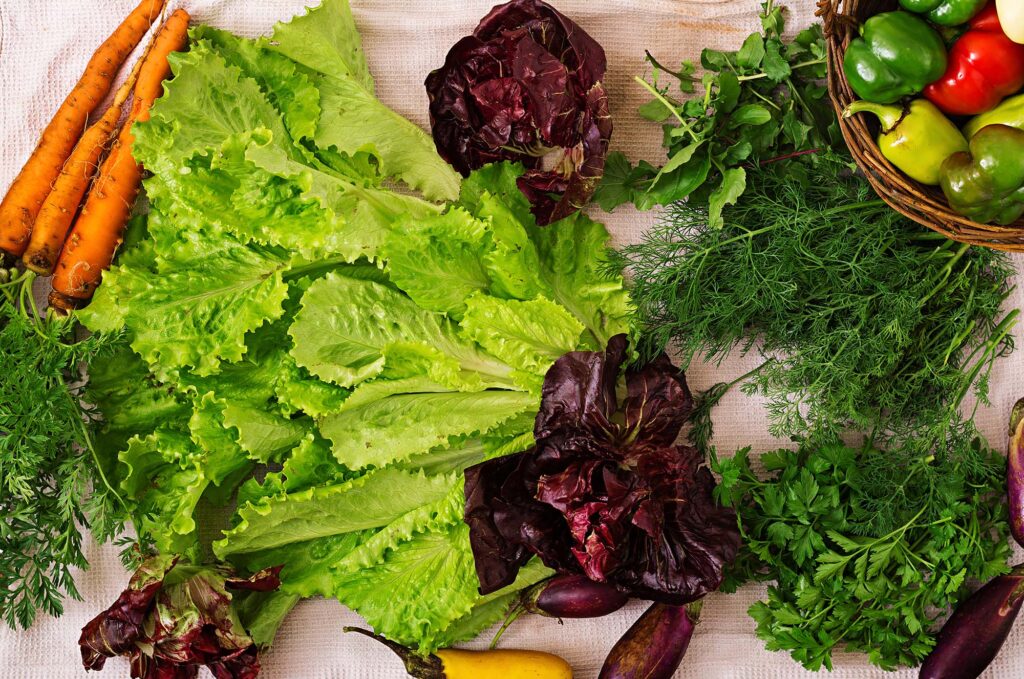
Leafy greens such as spinach, fenugreek (methi), and amaranth leaves are a vital part of Indian cuisine, often used in curries, stir-fries, and salads.
- Nutritional Information:
- Rich in Vitamins: These greens are excellent sources of vitamins A, C, and K, which are important for vision, skin health, and blood clotting.
- Iron and Calcium: Leafy greens provide iron for blood health and calcium for strong bones.
- Antioxidants: They are packed with antioxidants that help combat oxidative stress and reduce the risk of chronic diseases.
5. Fruits
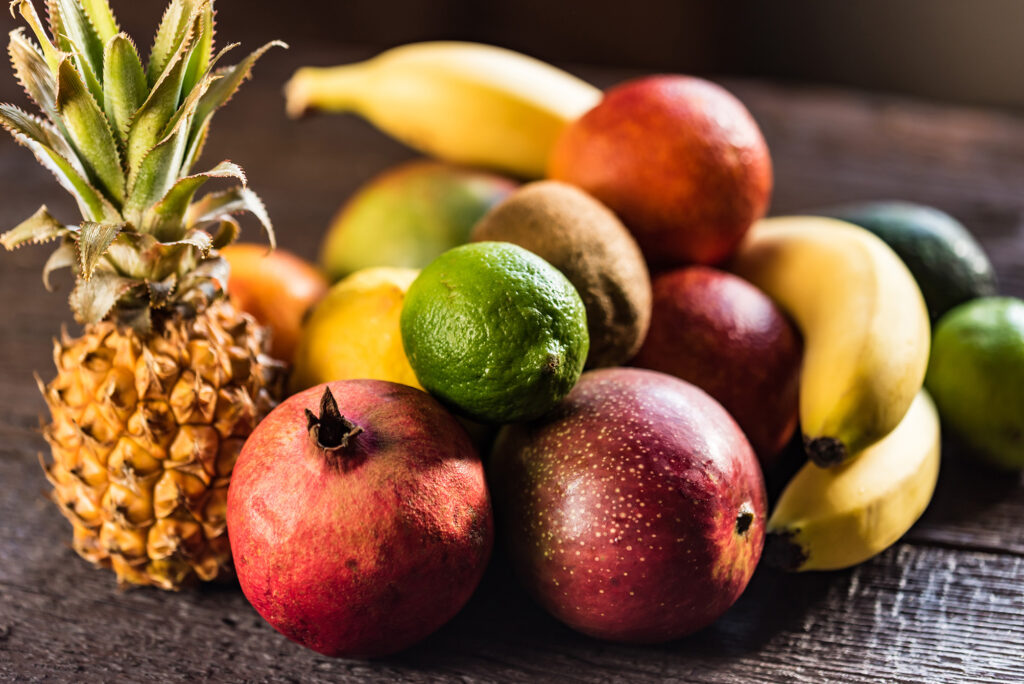
Indian fruits like mangoes, bananas, and guavas are not only delicious but also incredibly nutritious. They are often consumed fresh, in smoothies, or as part of desserts.
- Nutritional Information:
- Rich in Vitamins: Fruits are abundant in vitamin C, which boosts immunity and skin health, and vitamin A, which supports vision.
- Fiber: Fruits are a good source of dietary fiber, promoting digestion and preventing constipation.
- Natural Sugars: They provide natural sugars that offer a quick energy boost without the downsides of refined sugars.
Incorporating these powerful vegan food groups into your diet can significantly enhance your nutritional intake, leading to better overall health. One easy way to incorporate all of these in a day would be to include nuts and seeds in breakfast or as a snack in between meals, millet rotis or millet pulao with veggies or lentil and pulses and leafy vegetables in meals and fruits and leafy greens as snacks.
This National Nutrition Week, let’s celebrate the diversity and richness of Indian vegan foods that have nourished generations.
Pledge to try veg

